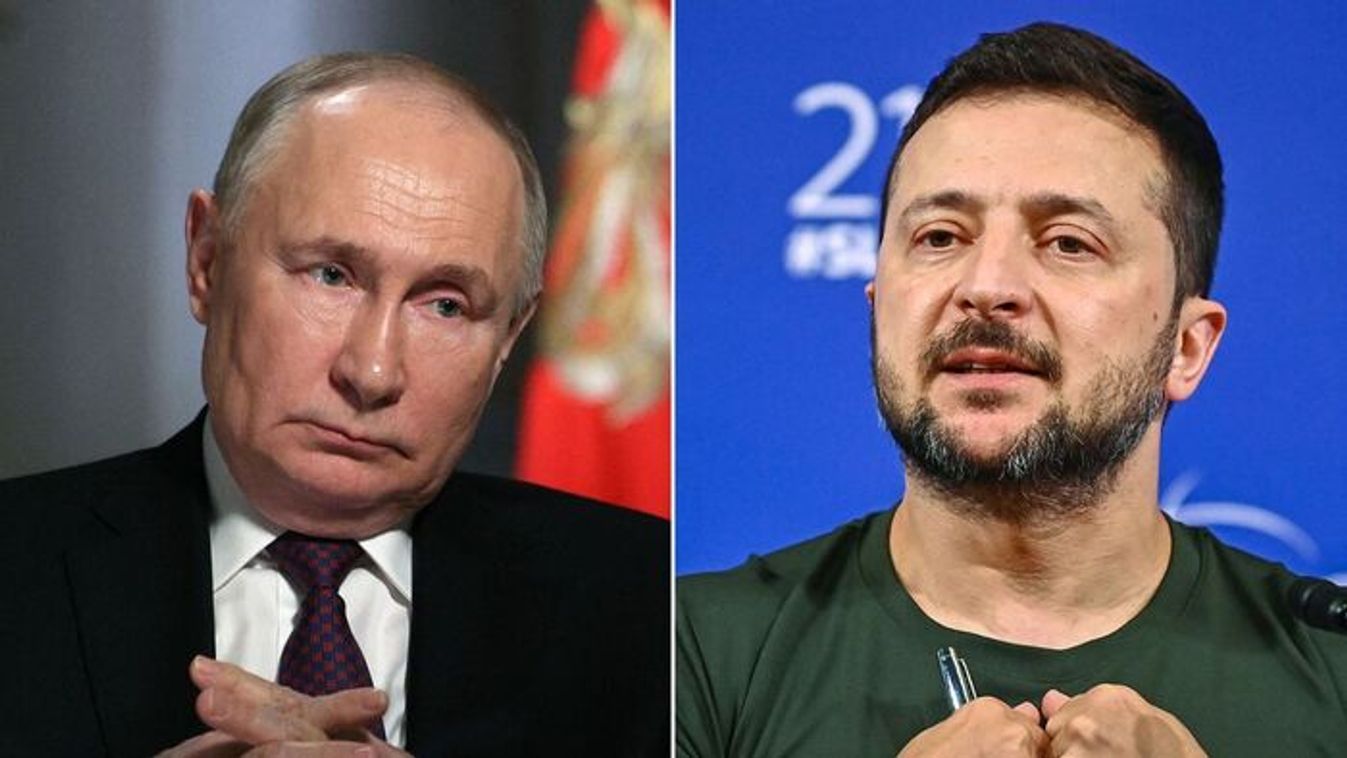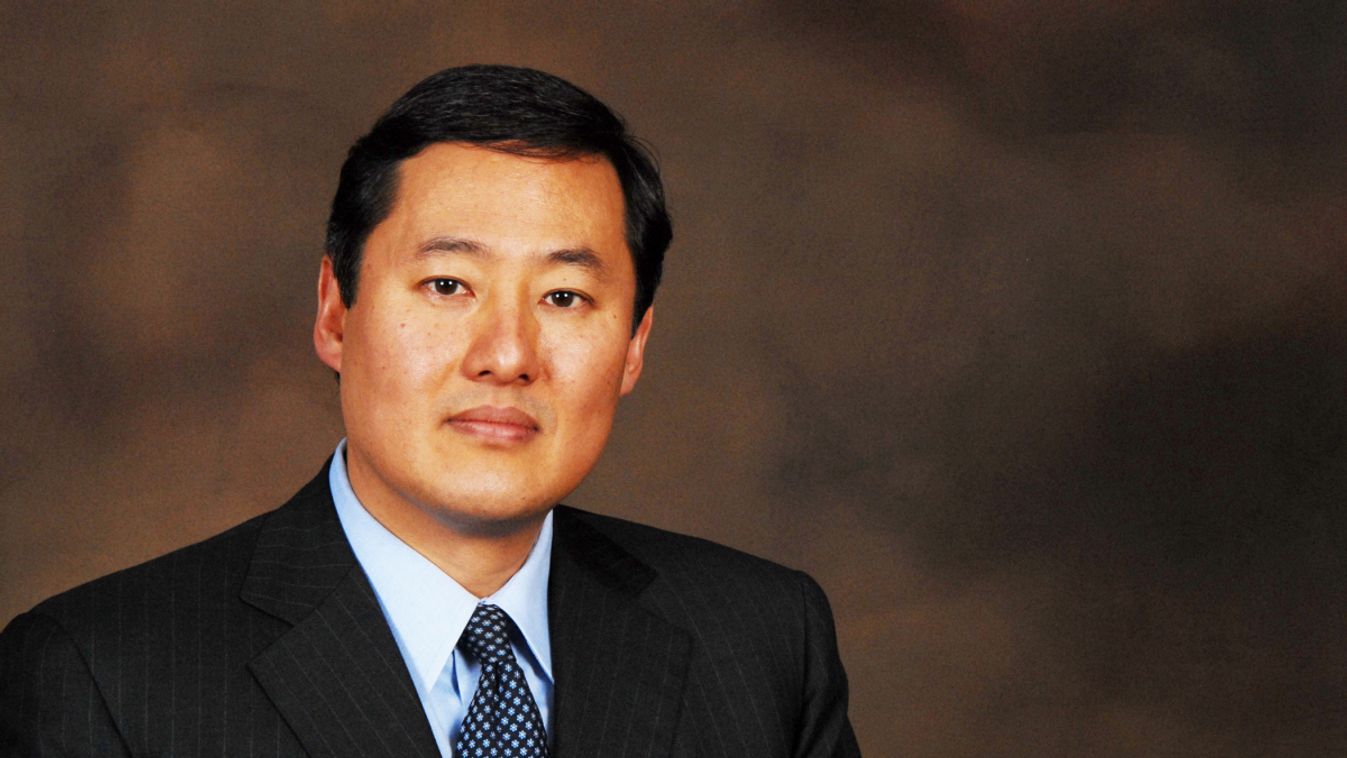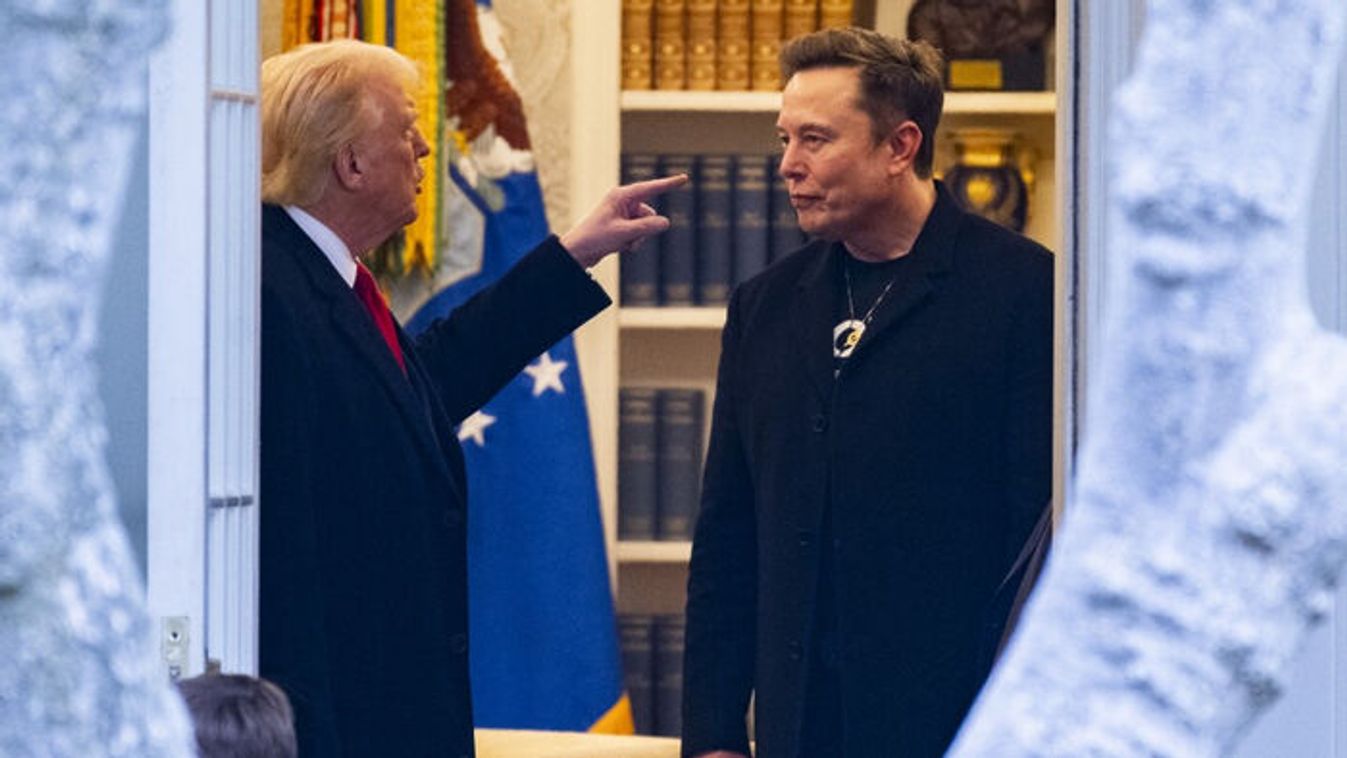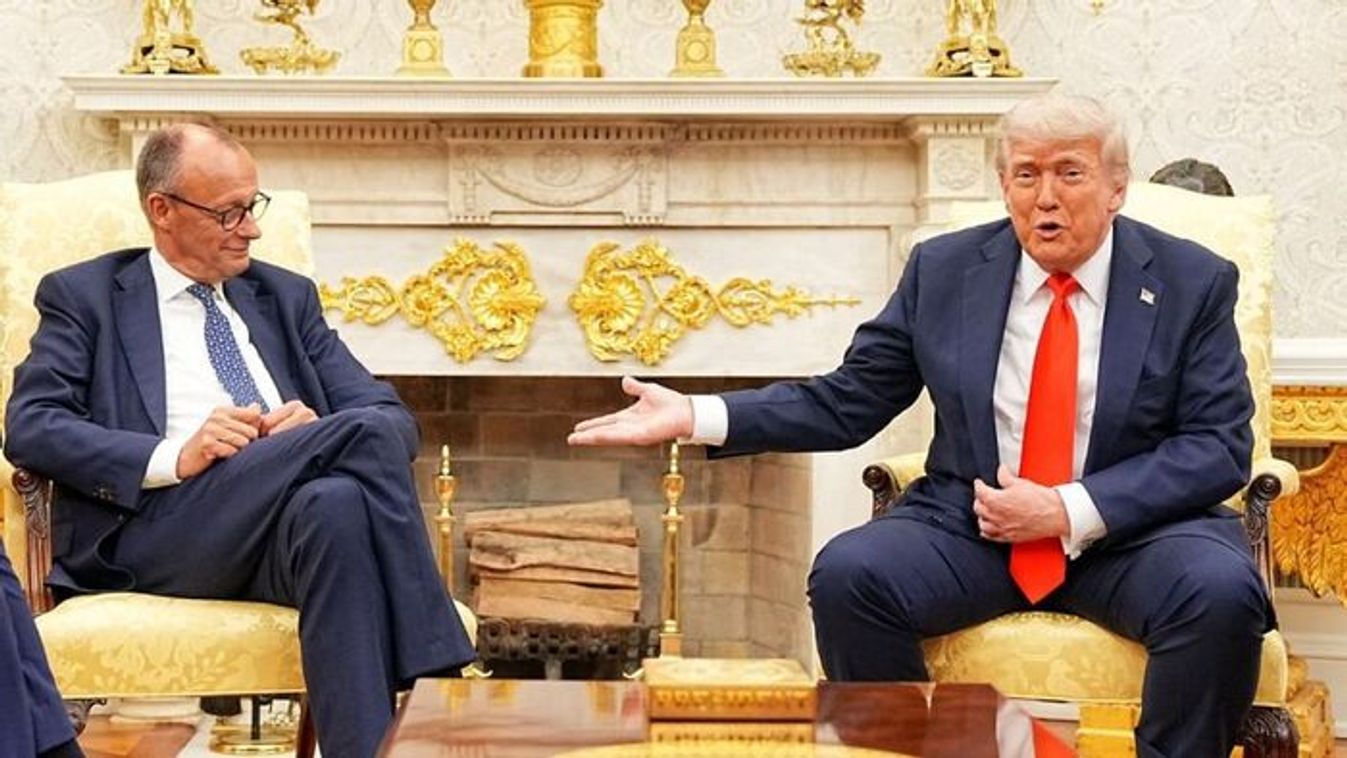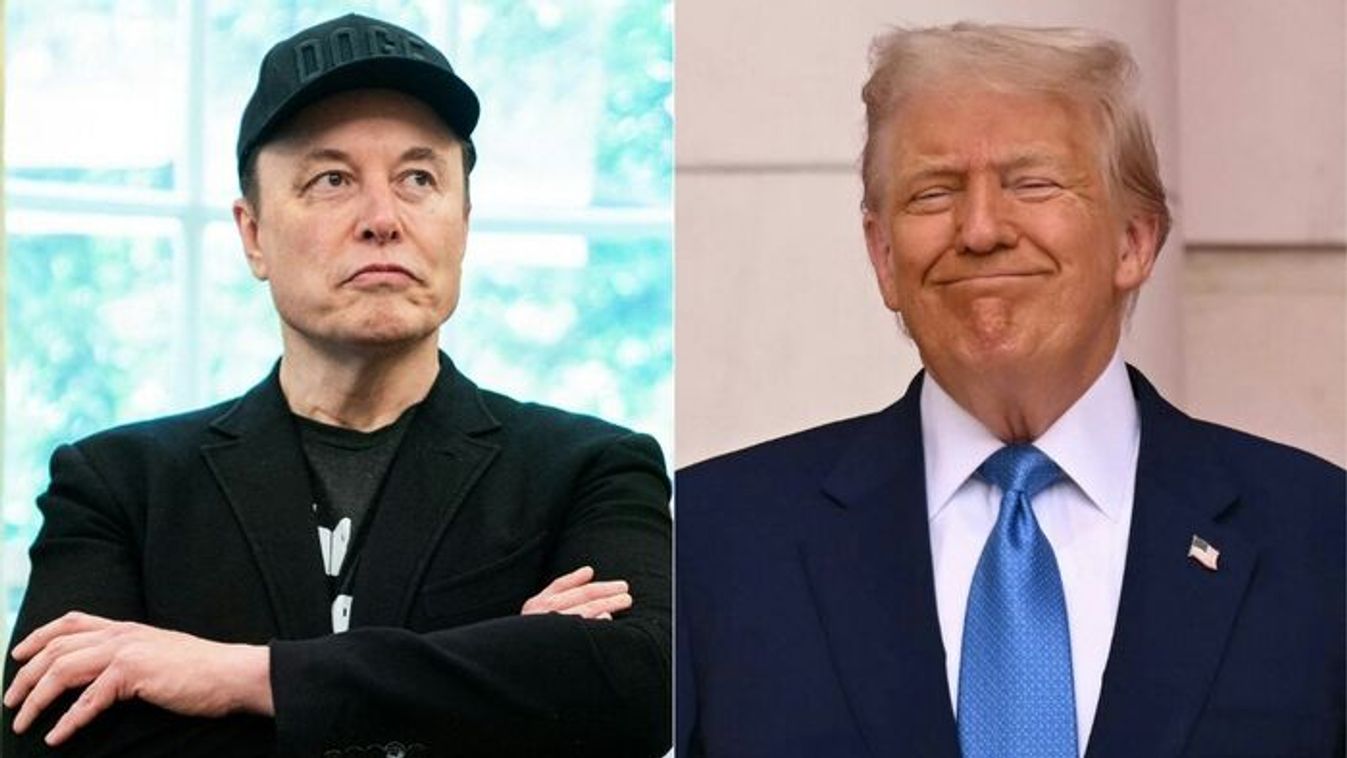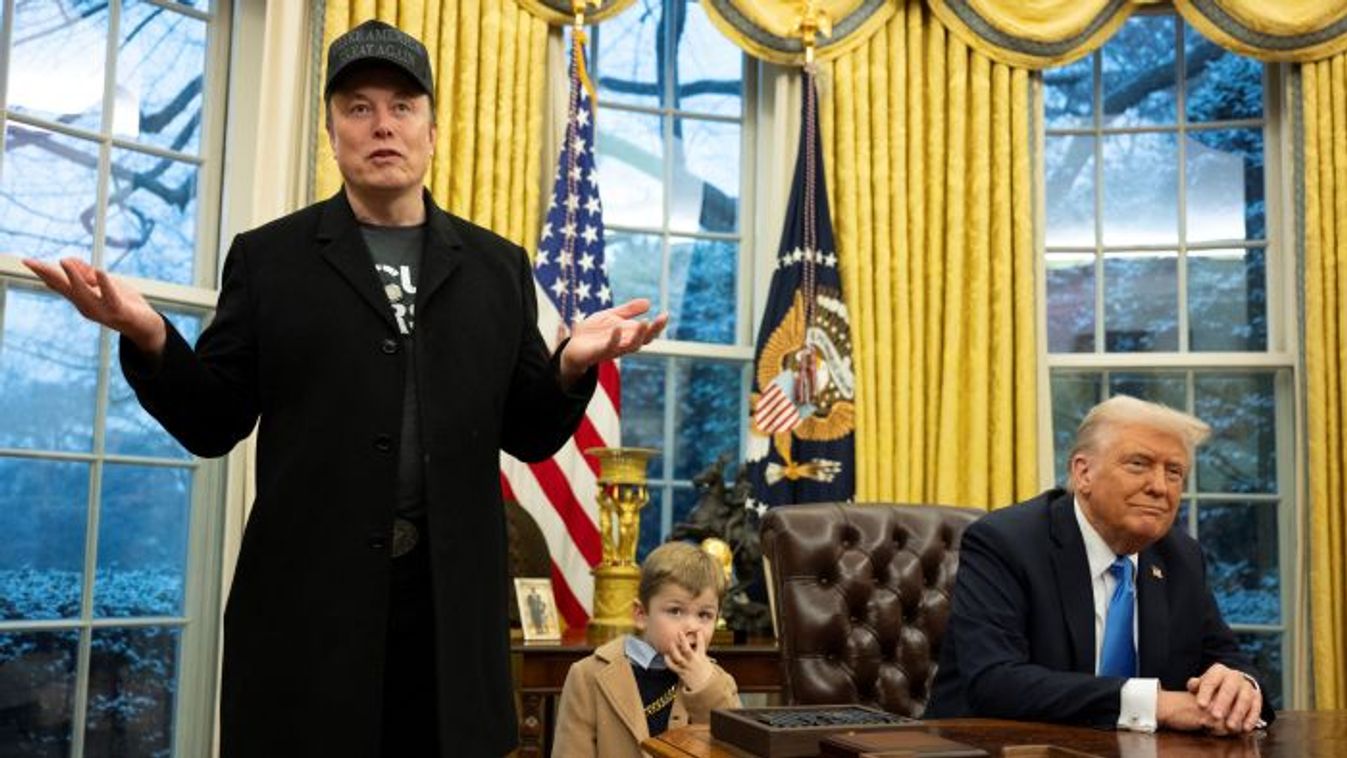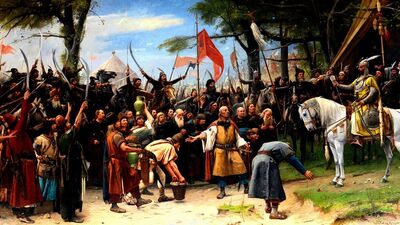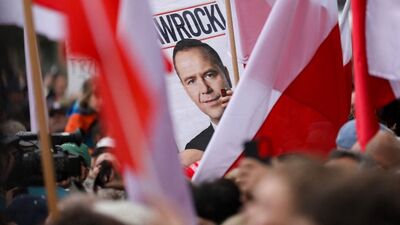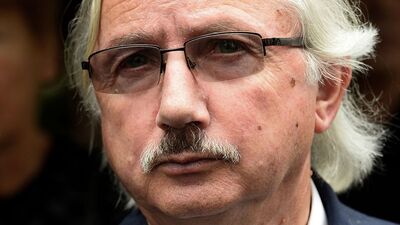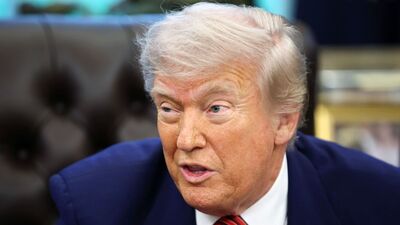John Yoo is the Emanuel Heller Professor of Law and director of the Korea Law Center, the California Constitution Center, and the Law School’s Program in Public Law and Policy. His most recent book is Defender in Chief: Donald Trump’s Fight for Presidential Power. Professor Yoo is a visiting scholar at the American Enterprise Institute and a visiting fellow at the Hoover Institution. Professor Yoo received his B.A., summa cum laude, in American history from Harvard University. He received his J.D. from Yale Law School, where he was an articles editor of the Yale Law Journal. Professor Yoo has clerked for Justice Clarence Thomas of the U.S. Supreme Court and Judge Laurence H. Silberman of the U.S. Court of Appeals of the D.C. Circuit.
Throughout the Presidency of Donald Trump, there were many – both conservative and progressive – critical voices against his disruptive behavior regarding the American constitutional norms and the rule of law. However, in your recently published book, Defender in Chief: Donald Trump's Fight for Presidential Power, you are making the argument that the case is just the opposite; President Trump actually defended the Constitution’s vision. Could you shed light on the essence of both constitutional arguments?
I think it is important to draw a distinction between Donald Trump as a candidate, and what he did after the election as President. Donald Trump was certainly disruptive and he had many things you could criticize him for in terms of his character and the way he conducted himself. However,
I do not think he wanted to tear down the Constitution.
In fact, I think that the people who were so enraged by him and who were so opposed to him were actually the ones attacking constitutional principles and structures.
Let me just to give you an example. After the election of Donald Trump, many of his critics called for the elimination of the Electoral College. They asserted that since the Electoral College led to the victory of Donald Trump, this system has to be wrong. People who opposed Donald Trump wanted to set up independent counsels, prosecutors who would take away the power of the President to enforce the law. In addition, there are still voices asking to pack the Supreme Court, because they do not like the Justices that President Trump nominated to the highest bench. This would be a direct attack on the rule of law in our country.
What position do you take in the book?
In the book, I make an explicit argument that Trump ended up actually defending the Constitution’s basic principles and structures from this progressive attack. If you think about what consumed his Presidency, it was the various investigations: from the special counsel investigation to the impeachment prosecution. These investigations have been efforts by Congress to try to interfere with the right of the President, as the only nationally elected member of the government, to set executive policy and to control what the bureaucracy does. Therefore, I make the argument in the book that behind the everyday political fights there was a larger struggle over the characteristics of government.
On the one hand, there is the view that the elected members of government should hand off power to bureaucracy and to unelected experts in order to insulate them from politics. Politics is a dirty word. Just think about the European Union as an example. On the other hand,
Donald Trump sought to restore the principles of the 18th century Constitution,
in which we elect a president who is a politician and that president personally controls the bureaucracy. The bureaucracy is not independent nor is it insulated but instead it is directly accountable, because this is the only way that democracy can make sure the government works for us.
I am wondering whether it is fair to say that President Trump wanted to restore the original understanding of the American Constitution.
It is a good point. If you think of when this European vision of governance arrived in America, it was the work of President Wilson, the intellectual father of modern bureaucracy. Then Franklin D. Roosevelt brought it forward and made it permanent. Before these shifts,
the Constitution created an American government that was rather small;
most power belonged to the States instead of the Federal Government.
In contrast, the original Constitution placed more power in our elected representatives. To do that, the President has to be the singular head of the executive. Every prosecutor in the Federal Government is only an assistant to the President. The Constitution charges the President with the job of executing the law or carrying out one policy or Commander in Chief of the military. Everyone else is an assistant to him. The President maintains control over this large bureaucracy through his power to fire those who do not obey his policies and orders. I think that when American voters voted for Trump four years ago, they wanted a return to that concept of the Constitution rather than the unaccountable and autonomous bureaucracy that we have today.
Although there were debates around the constitutional role of the presidents and the presidency in the early years of America. Some viewed the president as a “chief magistrate” while others asserted that the president has inherent policymaking authority. Throughout the decades of American constitutional history, the presidency has become increasingly powerful. As Arthur Schlesinger famously pointed out, it became “imperial”. What are the conservative and progressive views of the presidency and what, in your view, its constitutional limits?
This question goes to the fundamental fights that we have had for decades, which I think became exacerbated by Donald Trump and the resistance to President Trump. I think the American Constitution does not contemplate a large administrative state with power over large parts of the economy or with the power to tax and spend in the trillions and to set regulations about everyday life. The Constitution generally gives these powers to the States.
When did the shift towards the Federal Government occur?
With Woodrow Wilson. He studied in Europe and he was one of the earliest political scientists in the United States. He introduced the theory of the administrative state and experts governance to the United States. In his view, the question of public policy is too important to be left to politicians. So the best thing to do is for politicians to delegate power to the experts. Over time,
this faith in bureaucracy became more associated with the Democratic Party than with the Republican Party.
I think today’s Democratic Party, which includes those we call themselves progressives, is inspired by thinking going back to Wilson. Progressivism was not initially a partisan idea; the Republican Theodore Roosevelt was also a progressive. However, he did not base his policies on broad theories like Wilson, though he took some of the initial steps toward creating agencies and giving them independence.
When did progressivism become a defining line between the Republican and the Democratic Parties?
I think the progressive administrative state became the subject of partisan politics between Democrats and Republicans during the Presidencies of Franklin D. Roosevelt and Lyndon B. Johnson. Barack Obama became the fourth wave of progressivism, as it were. Republicans have come to oppose this vision of government because they oppose what it does. Therefore, they oppose the idea of nationalization or even internationalization of all the major public policy questions. They support instead local government close to the people. Republicans and conservatives are generally favorable of smaller government and more space for individual freedom and private civil society. Whereas the progressive view is that, there is no real stopping point of what government should control.
This fight has been going on since Woodrow Wilson. I think Ronald Reagan and Donald Trump have been the most successful presidents in trying to stop the growth of the administrative state or even reverse it. I think President Reagan managed to stop the expansion of government but he could not turn it backwards.
Donald Trump is the first president who actually succeeded in shrinking the modern bureaucracy.
However, it has a partisan political dimension now because there is this deeper philosophical conflict over the appropriate role for government in society.
As you point out, a major aspiration of conservatives is to defend the constitutional principle of limited government against the progressive vision of expert rule. By studying the judicial philosophies of three conservative Justices, Jeffrey Rosen, in his book titled The Supreme Court: The Personalities and Rivalries That Defined America points to an interesting paradox of modern American conservativism. According to this paradox, the only possible way to defend the principle of limited government is to have a vigorous President. How, in your view, can one resolve this contradiction?
I have looked into this dilemma in a book I wrote about ten years ago titled Crises and Command: A History of Executive Power from George Washington to George W. Bush. I think what has happened is the opposite of what the founders wanted. They thought that the Presidency would be strong, almost imperial, but only in two areas: foreign affairs externally and the enforcement of the law domestically. The Framers generally thought that Congress would be the primary policymaker domestically, and they wanted the Presidency to be strong domestically in order to check Congress. In fact, they worried that the legislature would be the true threat to individual freedom. However, what happened is the opposite. Congress handed off many of its powers. And it keeps handing more and more power to the executive branch because it does not want to have the responsibility to make tough decisions about domestic policy. Meanwhile, at the foreign policy level, the area where I think the Founders wanted the presidency to be at its height, Congress tries to interfere more and more because of the aftereffects of Vietnam and now the Iraq war. I think the polarity of the Constitution is the exact reverse of the original understanding, which is a strong presidency within a limited Federal Government. Now instead, progressives want a weak President in a boundless federal government.
How successful was the Trump administration in preserving and restoring constitutional values in America? What are the major constitutional legacies and what are the most important challenges ahead?
I think Trump’s greatest legacy will be the restoration of the original understanding of the Constitution. The instrument for that is the Federal Judiciary and the Supreme Court. President Trump managed to appoint three Justices to the highest bench and created a secure majority on the Court in favor of interpreting the Constitution in the way it was originally understood: limited federal powers, a stronger president, but also suspicion of the delegation of power to independent bureaucracies. This legacy will last for decades.
I think the other legacy President Trump achieved is deregulation. He reduced the size of the administrative agencies and repealed wasteful regulations. He powered economic growth and prosperity by reducing the size of the Federal Government and its interference with the decisions of private individuals through the markets. I think it will be harder for future Presidents to sacrifice economic prosperity, jobs and material welfare for the sake of an expanding regulatory state.
I think the public discourse in America still oppose the 1960s and the idea of a broad welfare state that takes care of everyone’s needs and look to the government to solve everything for us. Instead, our politics still seem to favor tax cuts and smaller governments. Even today, in regards to the debate around coronavirus and the response to the pandemic, neither Joe Biden nor Donald Trump thought that the Federal Government should be in charge of opening and closing businesses nationwide. The Federal Government did not try to take charge of who gets the vaccine and when. Instead, the States are the ones who decide in these questions. Because of that diversity, there are states such as Texas and Florida that are allowing business and schools to be more open during the coronavirus epidemic. Then there are States, like California, which have been more draconian in their lockdowns. I think Americans still respond to the argument that individual liberty depends on having a restrained government. We may still fight over its size at the margins, but we are still not talking about going back to the welfare state of the 1960s either.
You made an interesting point about the issue of internationalization of major public policy questions. Is it fair to say that the current era somehow reflect a struggle between globalism and localism?
Yes and it is actually happening much faster in Europe. According to progressive theory, when you have international problems like global warming, drug trafficking or trade flows then the level of government that address these issues has to be the same power and size. If climate change is global, then the effective solution must come from power exercised at the supranational level. The European Union is trying to pull power from the nation states upwards far more than this occurs in the United States.
The conservative view opposes these supranational solutions because it sees it as pulling apart the nation state and diluting its sovereignty.
I think this goes back to the original question about Trump. Even though Trump may not have thought about it in these terms, I think he was trying to conserve the sovereignty of the nation state rather than allowing it to be pulled upwards to the international level or to a supranational government.
The American Revolution was a revolution by a nation state against a multinational empire, the British Empire. The original idea behind the Revolution was that government close to the people is more responsible to the people and the exercise of the sovereignty of the people has to be close to home. Since there is something different about each nation, the borders drawn on maps are not irrational. The next step of the Wilsonian idea of bureaucracy is to create a very large international bureaucracy at a supranational level because problems are increasingly global. In contrast to this view, a sovereignty-based approach holds that nation states are the most important actors. They should cooperate to tackle global problems but they should never cede their sovereignties to anybody else.
Since you mentioned the period when Americans are revolting against a multinational British empire, I am wondering whether this case is now the other way around and Brexit was a signal against the EU that aspires to become an empire…
I wrote a book about this dilemma several years ago titled Taming Globalization: International Law, the U.S. Constitution, and the New World Order. I addressed the constitutional problems raised by transferring governmental powers beyond nation states. This problem looms large in many countries of the West. Hungary is facing it too as well as other Central and Eastern European countries. And this problem of course was raised by Brexit in the United Kingdom. On the one hand, there are efforts to create a supranational government in the European Union. On the other hand, you see a reaction by nation states to protect their sovereignty. I think scholars and international bureaucrats sometimes say that nation states are inconvenient since they represent an irrational attachment to history, to people, and to land. In my view, however, the nation state is still the only effective actor in the world affairs.
There is a reason that people are attached to their nations.
I do think that Brexit and Trump both expressed the reassertion of nation state sovereignty.
There are several cracks among the Member States of the European Union. These cracks have become increasingly visible in the past decade that brought a crises period to Europe. How do you see these cracks from overseas?
Different countries see the EU in different ways and from different perspectives. Given the horrors of WWII, the reaction of Western European countries was to place less trust in their national governments. They might say that we are not Italians or Germans but Europeans instead. However, if you are Eastern European the experience is quite different. People in Central and Eastern Europe lived under one international totalitarian ideology after another: first fascism and then Communism.
There, nation states were the protectors of the people in Central and Eastern Europe
from the totalitarian ideologies.
How do you see the outcome of these different approaches as well as the future of Europe?
Some of the Founders of the European Union wanted integration to lead to a European super state. Frankly, I do not see that happening. Why should each people, such as the Hungarians, Poles, and British want to lose its individual historical distinctiveness and cultural uniqueness in order to merge into a great European superstate. I think the better outcome is a system where nations cooperate on certain matters such as a unified market or external defense.
The problem with the EU is that it uses the internal common market as an excuse to extend its powers into other areas, which are not necessary related to a free market.
It would seem to me that having a European system where the nations states still control most of everyday life is still best. That would also preserve healthy competition between States and the right live based on your attachment to your country. One lesson of the American experience is that decentralizing regulatory powers among competing States closer to the people better protects individual liberty.
